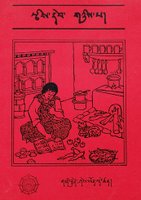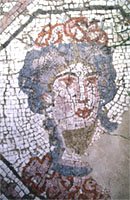 As part of the 60 weeks of celebrations of the organization’s 60th anniversary, UNESCO has been devoting each week to a specific theme. Non-Formal education was the highlight of the week September 25th through 30th, 2006. Click here to review the infosheet on this topic.
As part of the 60 weeks of celebrations of the organization’s 60th anniversary, UNESCO has been devoting each week to a specific theme. Non-Formal education was the highlight of the week September 25th through 30th, 2006. Click here to review the infosheet on this topic.
Non-formal education constitutes learning opportunities for the vast majority of children, youth and adults in developing countries who are not reached by the formal education system. Non-formal Education may take place both within and outside educational institutions, and may cater to persons of all ages. Depending on country contexts, it may cover educational programmes to impart adult literacy, basic education for out-of-school children, life-skills, work-skills, and general culture. Non-formal education programmes do not necessarily follow the 'ladder' system, may have varying durations, and may or may not confer certification of the learning achieved. In order to reach the Dakar goal for reducing illiteracy by 2015, UNESCO has been organizing a number of non-formal education-related workshops, symposiums and conferences. More
UNESCO has also initiated a array of projects to promote non-formal education based on the needs of specific types of countries and regions. Selected projects include:
*Basic Trades for Small Island Nations: This initiative targets the improvement of the qualifications of semi literate workers in conconstruction sector across the South Pacific Countries.
*Hope and solidarity through ballgames: This project aims to reach underprivileged and excluded children and to ensure their reinsertion in society, through athletic, cultural and playful activities.
UNESCO has also published a series of handbooks and multimedia materials in order to reach out non-formal educators and provide them with guidance to alternative approaches, tools and an overview of good practices. This was namely the purpose of the following support materials:
*Handbook for Literacy and Non-formal Education Facilitators in Africa
*Synergies between Formal and Non-formal Education: An Overview of Good Practices
*Emerging and re-emerging learning communities:Old wisdoms and new initiatives from around the world
Related Websites
The Dakar Framework for Action
The UNESCO Exchange platform on Non-formal Education
The UNESCO portal on Education For All
 UNESCO will celebrate its 60th anniversary during 60 weeks until 4 November 2006, by devoting each week to one specific theme. Among the 60 themes identified, 16 are dedicated to education, and 16 to culture.
UNESCO will celebrate its 60th anniversary during 60 weeks until 4 November 2006, by devoting each week to one specific theme. Among the 60 themes identified, 16 are dedicated to education, and 16 to culture.